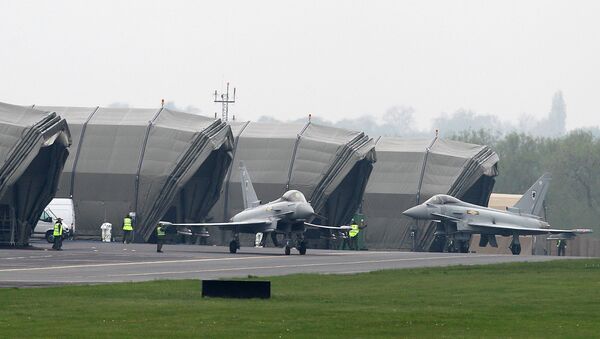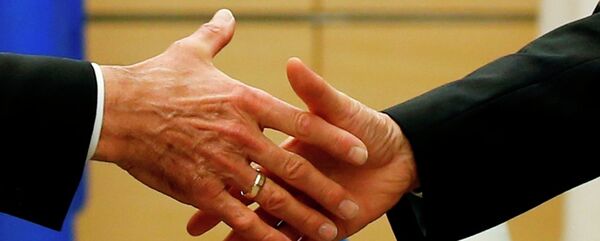Michael Fallon, UK’s Defense Secretary, paid Japan a visit on Saturday, meeting his local counterpart, the Japanese Minister of Defense, Gen Nakatani. On the occasion, Fallon discussed enhancing military cooperation with the Land of the Rising Sun.
“Japan is our closest security partner in Asia and I want to significantly deepen defense cooperation between our two nations,” Fallon stated. “We will do that through joint exercises, reciprocal access to our military bases, military personnel exchanges and cooperation on equipment, including a new air-to-air missile.”
Def Sec has announced the UK is working to hold a joint military exercise with Japan in 2016 https://t.co/tDV6pYInCV pic.twitter.com/uWOCV8rcPm
— Ministry of Defence (@DefenceHQ) January 8, 2016
The host nation praised the UK for its noticeable come-back to the region, on the side of Tokyo and Washington.
“[T]he UK reaffirmed its commitment to its presence as a global power,” said Nakatani. “The SDSR (UK’s Strategic Defence and Security Review 2015) highlighted Japan as the closest security partner in Asia, and I highly regard this statement.”
Disputes around the South China Sea and concerns over the North Korean nuclear arsenal have brought the two nations together.
“We have created a foundation with Britain, which upholds rules-based international order, to jointly raise our voices and cope,” Japan Times quoted him as saying.
Fallon, for his part, welcomed an increased involvement of Japan into activities of the NATO alliance.
Reports suggesting Japan is considering taking part in a NATO missile consortium, that appeared this summer, seen by many as another step in Prime Minister Shinzo Abe’s policy of increasing defense cooperation. Since returning as PM in late 2012, Abe has overseen a number of research-and-development and production cooperation projects with countries such as the US, UK, France and Australia by lifting Japan’s decades-long self-imposed arms export ban.
The ban, based on three principles, previously prohibited Tokyo from exporting arms to communist states, states involved in conflict or those subject to UN embargoes.
As China rises, US deploys most advanced aircraft carrier to boost Japan https://t.co/pcvU9Uyy2P #military pic.twitter.com/PTIlZ5GJKp
— Sputnik (@SputnikInt) October 1, 2015
If Japan does join the NATO consortium, it would increase the alliance’s influence beyond Western Europe and North America, with NATO recently bulking up its Eastern European military resources to combat the perceived threat of Russia.
The Japanese Cabinet approved a record high 5.05-trillion-yen ($42 billion) draft defense budget for 2016, local media reported late last year. Japan’s lower house of parliament last summer approved highly controversial legislation — tabled by Abe — that could see troops sent abroad to fight for the first time since World War Two.



